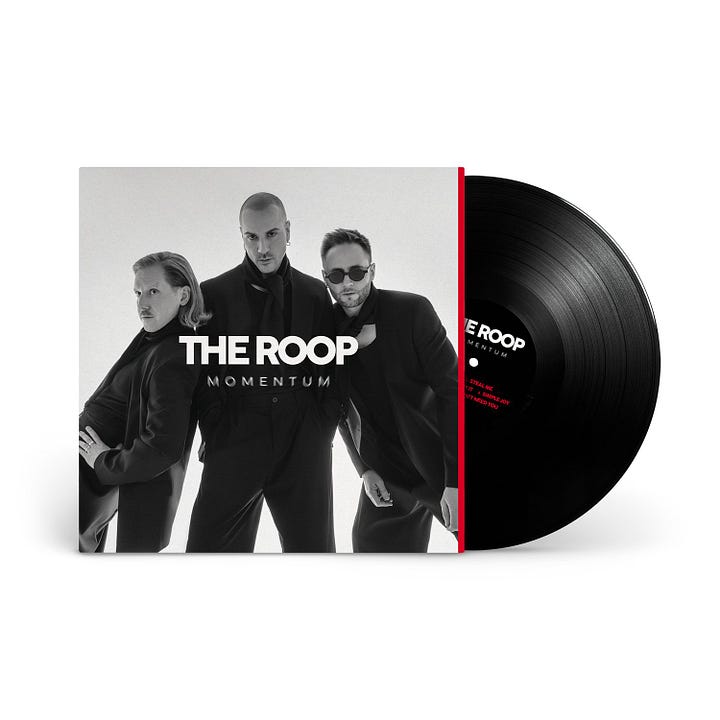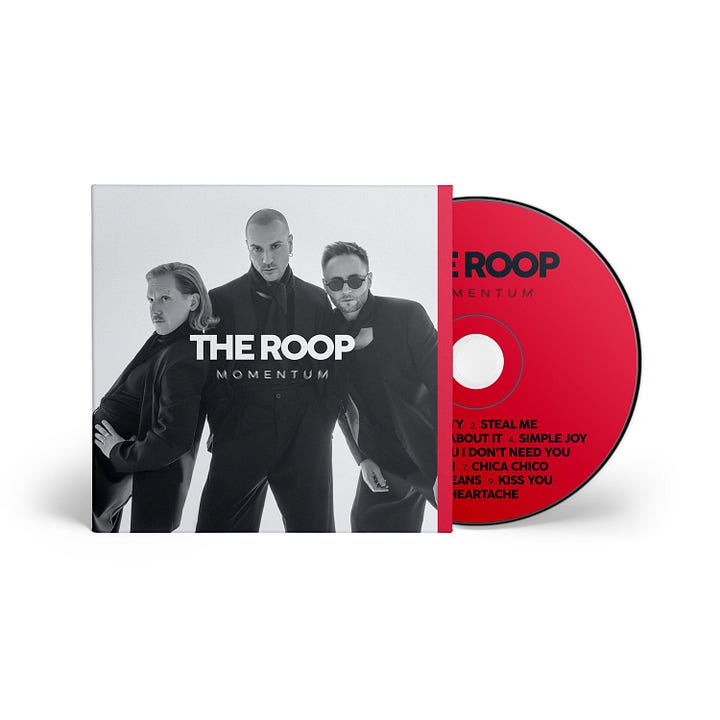This newsletter and all its content are copyrighted by THE ROOP and cannot be copied or published without their written consent.
Major labels need to evolve
Hello, this is Vaidotas. Major labels need to evolve. Otherwise, in the long term they’ll become obsolete or be replaced by new solutions. Change is happening—but not always for the better.
In the past, labels discovered promising artists or bands and built long-term strategies with them—spanning several years. Now, I increasingly hear about short-term relationships. It’s like in a couple: you need to dedicate time and find the best solutions together to stay strong and reap emotional and even financial rewards. Studies show that people in stable, secure relationships find peace, reduce stress, and focus better at work.
Lately, however, it seems labels lure artists in, use them while they’re valuable, and at the first obstacle—they let them go and won’t invest. They turn their backs and plunge into new relationships.
Short-Term Thinking Is Killing Long-Term Artists.
I watched a Netflix music documentary and was really struck by a comment from Blur’s legendary drummer, Dave Rowntree:
“We made several missteps in our career, you know, it has to be said. Nowadays, if your first single doesn’t chart, you can forget it. That’s a shame because it means that bands like us probably wouldn’t succeed now. And obviously for me, I think that’s tragic.”
His words resonated strongly with me—and it confirmed I wasn’t the only one noticing this. Why so little patience? Why expect to plant an apple tree and harvest fruit in the same spring? That’s not how nature works. Nor does a long-term business.
You might stretch this approach over 2 or even 10 years, jumping from one artist to another without strategy, genuine commitment, or teamwork — but eventually, this behavior will come to an end.
At the same time, artists are waking from that dream and voicing dissatisfaction—they no longer want to work with major labels.
There’s another problem: the old rules are very hard to change
First, some context. There are approximately 5 languages in which you can sing if you want your music played on mainstream radio around the world: English, Spanish, Italian, French, and Portuguese.
There are very rare exceptions when artists singing in other languages become international hits—but let’s focus on the main reality. If you sing in Lithuanian, Polish, Finnish—you typically only get play on local radio stations and appeal to a domestic audience.
Singing in your native language (not one of those five), you become very locally attractive but will struggle internationally. Because, let’s be honest—how many songs in Polish do you hear on your radio, even if they sound great? It doesn’t happen—unless you’re in Poland. The same goes for other languages.
Back to the major label rule that needs changing: they still often insist a song must “explode” in its local market first before they push it internationally. But in our case, that’s hardly possible—unless you’ve already made that song big yourself, like through Eurovision.
In Lithuania, as in many countries, local-language music is booming. So if you sing in English, your track is less likely to break through locally than something in the native tongue. I could write a whole article on listener psychology in different countries. So if a song is in Lithuanian, it might quickly take off locally. But in that case, major labels won’t do anything internationally, because it won’t be played abroad. And if you sing in English in Lithuania, it’s almost impossible to “explode” locally—but that is the version that has international potential. Major labels, by their rule, won’t push you abroad because you didn’t get much traction at home. It becomes a closed circle. We encountered this ourselves, and I tried in vain to explain how this rule often just DOESN’T FIT.
I’m not speaking randomly. We spent three years doing deep analysis, lots of communication, gathering data, and systematizing it so we could truly understand the situation. Because only when you know where you are and what’s happening can you find the right solutions.
That’s what we’re doing. We’re not just sitting around creating songs—we must also understand social media, learn filming, editing, copywriting, music business. No one will do that for us.
Almost every Lithuanian artist who first sang in English and tried to break abroad suddenly gave up and switched to singing in Lithuanian. We completely understand why—it's easier, and money for living comes faster and more steadily that way. I know a similar situation in Latvia, Estonia, and elsewhere.
We are the only band from Lithuania to have received seven Lithuanian national music awards for fully English songs. That’s rare. We recently looked at Lithuania's Top 40 for one week and we were the only ones with an English song. The only ones! Everyone else went local. But we want to go international. It’s insanely hard—but also extremely exciting.
So: is there hope that major labels and the global music industry will change? I believe so. I think new solutions, platforms, and services will emerge that allow artists to share diverse art and earn a living from it—not just survive, but live well. And we, THE ROOP, won’t give up. We’ll keep creating our art, learning from our mistakes, and finding the right people to help us.
Check out our BUILDING MOMENTUM video series
We’re thrilled to present the BUILDING MOMENTUM video series!
10 episodes diving into each song from our fresh new album “Momentum”.
How is a song created? Where did it happen? What really goes on behind the scenes of the band?
The first episode is all about the track that opens the album — “Nasty”!
Our latest album MOMENTUM is now available on CD and Vinyl!


The following content is for Premium Paid subscribers. Become a Premium subscriber now and get a sneak peek of our brand-new, unreleased music video!








